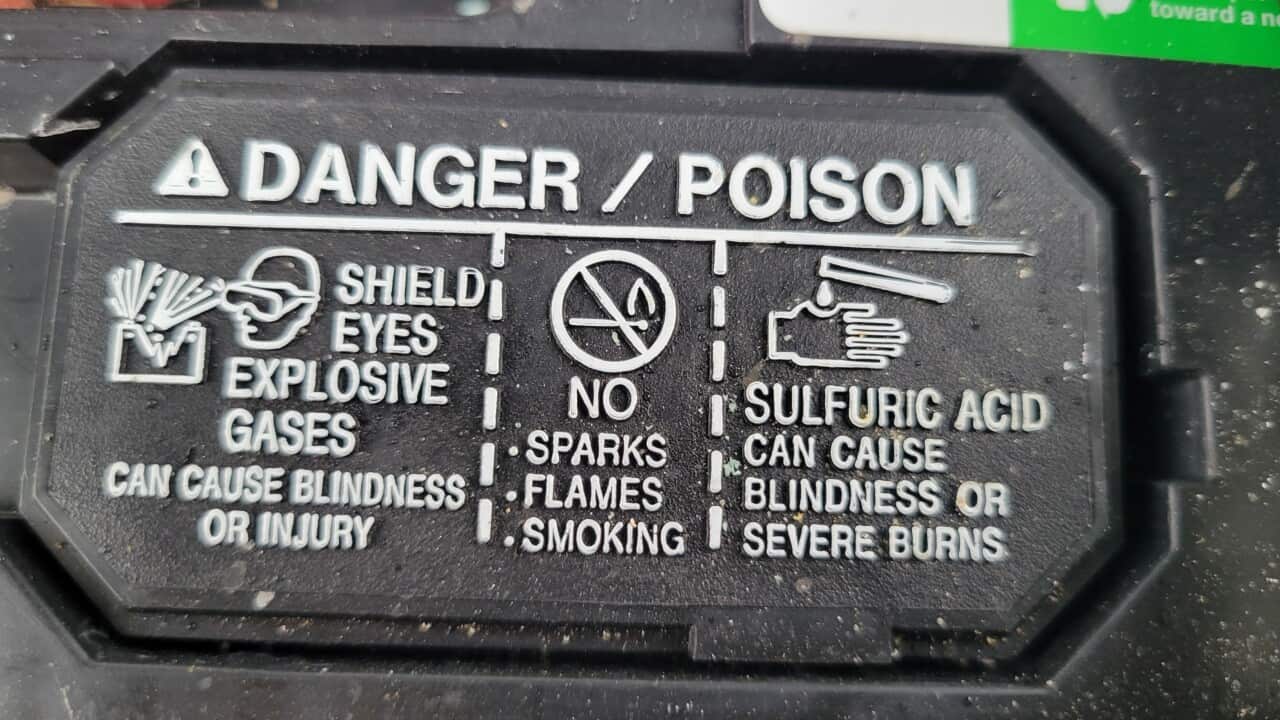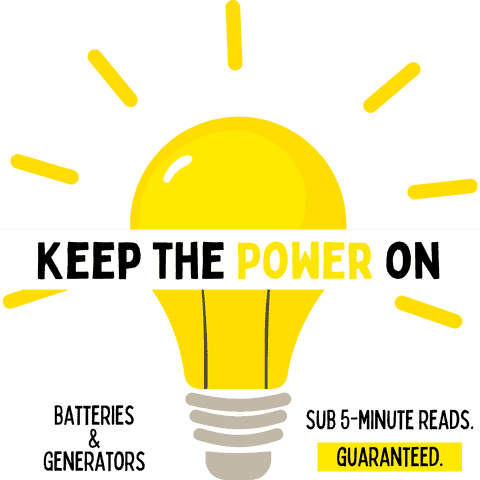When charging a car battery, you expect the process to be pretty straightforward. Hook up the cables, plug in the charger, and voila! What most people don’t expect is to have their battery start hissing, whistling, or gurgling while it’s charging.
Let’s get right to the point and find out the most common reasons why this is happening and what you need to do to fix it!
Listen to the article below by hitting the play button below and feel free to scroll the page for any helpful visuals. All of the articles on this website will have this audio feature for your convenience.
Why is My Car Battery Hissing?
The most common reason for a battery to hiss is that the charger being used has too high of a charging amperage for the battery being charged. This leads to overcharging and a buildup of pressure inside the battery which escapes with a hiss through the vents. Keeping the charging amps at 10% or less than the battery’s total amp-hour (Ah) rating keeps the battery from over-pressurizing and hissing.
| Battery Hissing Issue | Probability of Occurrence | How to Fix |
|---|---|---|
| Over-sized charger for the battery in question (Overcharging) | Very Common | Keep your charging amps at 10% or less than the battery’s total Ah (amp hour) rating |
| Charger in Desulfation/Equalization Mode | Common | Switch to a charger that doesn’t have this feature, requires that you manually toggle it, or allow it to finish this “controlled overcharge” |
| Battery Damaged / Low on Electrolyte | Rare / Common | Refill a flooded battery (has caps that pop off) with distilled water so that exposed plates are covered before charging; Sealed batteries cannot be serviced |
| Charger Doesn’t Have a Float Mode (Overcharging after battery is full) | Common | Use a newer smart charger with a float mode or remove your charger from battery after it is at 100% |
| Charger Malfunctioning | Rare | Rule out the top 4 reasons and then buy a new battery charger |
As noted in the table above, the problem of overcharging is the primary cause for a hissing battery. When you use a charger with amps that exceed what the battery itself can convert into stored chemical energy, then the electrolyte will heat up in the battery and steam will be released.
The steam will build up inside the battery from overcharging until it exceeds the threshold for the pressure release valve in the battery. The result is a hissing sound as the high pressure air and steam escape through the valve.
On flooded lead acid batteries (the ones where you pop off the caps to check the electrolyte inside) can have distilled water added back to make up for any loss of evaporation. Sealed batteries (you can’t check the liquid inside) are designed to recombine the evaporated electrolyte, but if the pressure builds up too much, then they will hiss as the steam escapes.

You may also experience hissing if your battery charger is going through a “maintenance”, “desulfation”, or “equalization” mode. This is a controlled overcharge of your battery and it is designed to dislodge any lead sulfate crystals that have built up on your battery’s plates which make it harder to charge and weaker when in use.
I prefer chargers that do not do this process automatically and instead need to be toggled by the user to initiate.
You may hear hissing if your battery is damaged (internal short, for example, where the plates are touching inside the battery) or low on electrolyte (plates exposed to air), then this will also lead to rapid overheating of your battery — especially when charging (even if the charger is appropriately sized).
Finally, if you’re using an antiquated charger that continues to charge even after the battery is at 100%, then every minute you leave the battery hooked up to the charger after that point will built up pressure from evaporated steam as the battery overheats and overcharges. This, once again, can lead to a hissing battery.
If you’re looking for a charger that doesn’t conduct a desulfation mode and doesn’t charge the battery after it is at 100%, then I highly recommend this charger that I have been using for 7 years. It is simple to use, it’s gentle on your battery, but it’s still strong enough to fully charge almost any car battery overnight.
How to Fix a Hissing Battery
The easiest way to ensure your battery doesn’t start hissing is to make sure that you’re not overcharging it. This means using a charger with charging amps that are 10% or less than the battery’s total Ah rating (amp hours). This also means using a modern smart charger (like the one linked to in the previous paragraph) that will act as a float charger when the battery is at 100%.
A float charger can be left connected indefinitely, as it only emits a charging current when the battery naturally self-discharges and drops below 100%. Once it hits 100% again, the battery charger ceases to charge.
Ensuring that your battery is in good working order is also essential. You can’t do much without a specialized meter to check a sealed battery’s health, but if you have a flooded battery you can visually check the electrolyte levels, check the total voltage of the battery between the two terminals with a multimeter, and you can check the specific gravity of each of the cells with a hydrometer. It is best to check this when the battery is charged.
Your electrolyte levels should be within 1/4″ of the bottom of the fill tube leading down into each cell. If it is low but the plates are not exposed, charge the battery first before adding distilled water to bring the levels back up.
If the plates are exposed to air, add just enough distilled water to fully cover the plates, then fully charge, and then add the remainder of the water.
Of course, always wear safety glasses when adding water to a battery and be warned that any splash of the battery acid will eat a hole in your clothes and will irritate skin and burn it if not immediately washed away with clean water.
